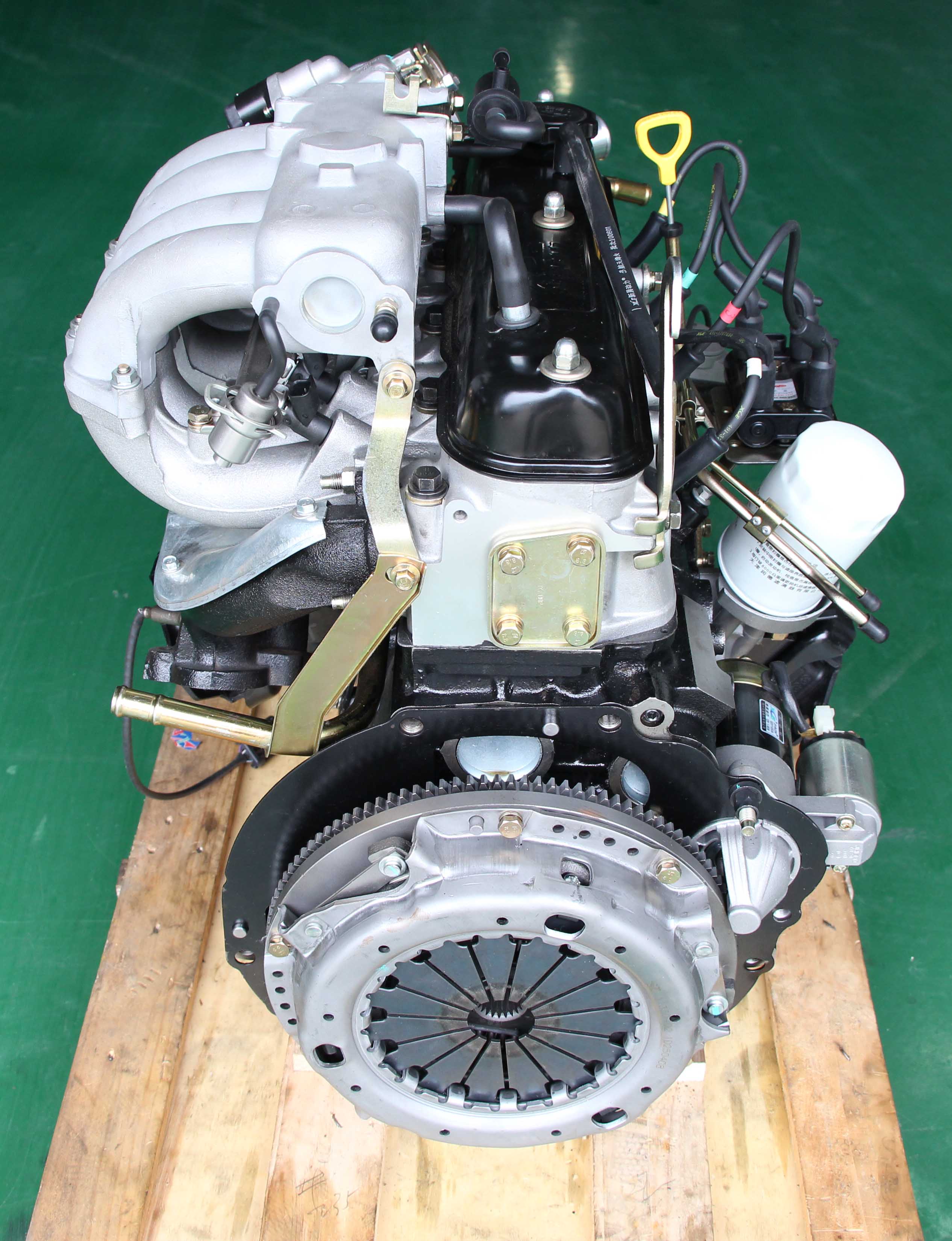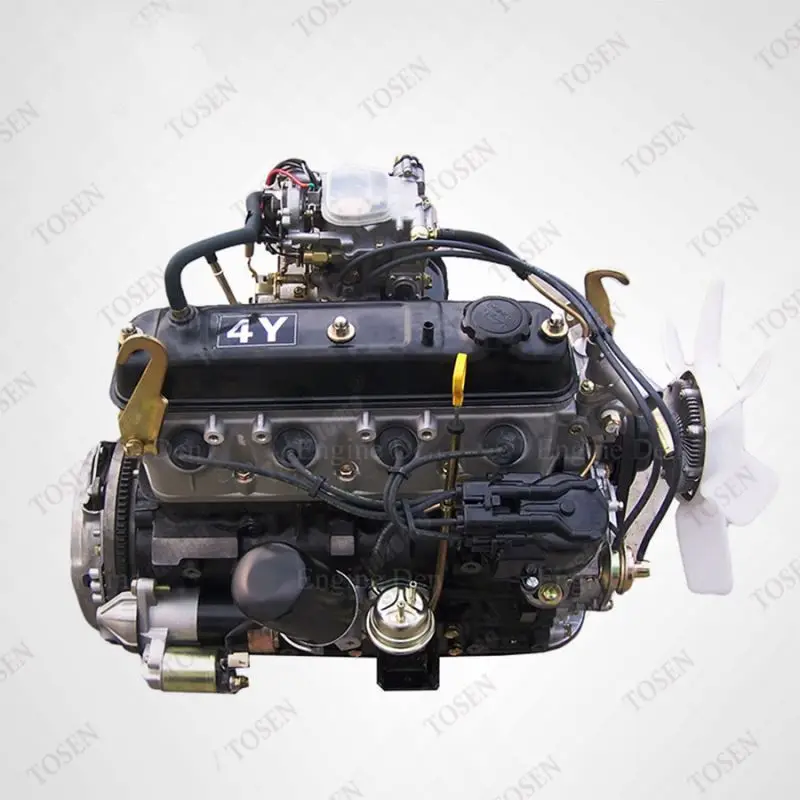The History and Evolution of the 4Y Engine in Automotive Engineering
Wiki Article
Exploring the Different Sorts Of Engine: Which One Fits Your Demands?
In the mission to establish one of the most suitable engine type for your certain needs, it is essential to assess the unique characteristics and benefits of each choice readily available. Inner combustion engines proceed to control because of their dependability, while electrical engines are acquiring traction for their sustainability. Hybrid engines provide a functional compromise, and diesel engines stand apart for their power in demanding applications. Furthermore, alternative fuel engines present cutting-edge remedies, albeit with particular constraints. Comprehending your concerns will be instrumental in this decision-making procedure, bring about an expedition of elements that may affect your selection.
Interior Combustion Engines
Inner combustion engines (ICEs) are the foundation of contemporary transportation, powering a substantial variety of vehicles from cars to planes. These engines operate the concept of transforming fuel right into power via a series of regulated explosions within a burning chamber. The most usual sorts of ICEs include gas engines, diesel engines, and rotating engines, each developed to fulfill particular efficiency and effectiveness demands.Gas engines typically use spark ignition, while diesel motor count on compression ignition, leading to distinctive differences in gas performance and power outcome (4y engine). Rotating engines, or Wankel engines, offer a small layout and smooth operation, however are much less typically made use of in mainstream applications
ICEs have gone through substantial developments in technology, including the introduction of turbocharging and fuel injection systems, which enhance overall performance and efficiency. In spite of their performance improvements, ICEs deal with boosting analysis due to their environmental effect, specifically regarding greenhouse gas emissions. As the vehicle sector advances, the future of ICEs remains a topic of argument, balancing performance, effectiveness, and ecological considerations. Nonetheless, they remain to play a crucial duty in international transport framework.
Electric Engines
As issues about ecological sustainability and nonrenewable fuel source dependence grow, electric engines have actually become an engaging option to internal burning engines. These engines make use of electric motors powered by batteries or fuel cells, providing a cleaner and extra effective ways of propulsion.One of the key benefits of electric engines is their reduced exhausts. Unlike standard engines that shed fossil fuels, electrical engines create zero tailpipe exhausts, substantially reducing air contamination and adding to enhanced public health. In addition, the effectiveness of electric motors usually exceeds that of internal combustion engines, transforming a higher percentage of energy from the power resource into useful energy for activity.
Electric engines are likewise notable for their silent procedure, making them ideal for metropolitan settings. 4y engine. The simplicity of their layout results in less moving components, which can result in lowered maintenance prices and enhanced integrity in time
Nonetheless, challenges stay, including battery production influences, charging framework, and range restrictions. Regardless of these hurdles, the expanding financial investment in electric automobile technology and sustainable power resources points toward an encouraging future for electric engines, positioned to play an essential function in the transition toward lasting transport.
Hybrid Engines
Blending the benefits of both electrical and traditional internal combustion engines, hybrid engines represent a flexible remedy in the quest for effective and sustainable transport. These engines incorporate a fuel or diesel engine with an electric motor, enabling for enhanced gas performance and reduced emissions compared to conventional cars.Hybrid engines run in numerous settings, using the electrical motor for low-speed driving and the inner burning engine for greater speeds or when more power is needed. This vibrant procedure not just boosts gas economy but likewise adds to a smoother driving experience. Regenerative stopping see this site is one more essential feature, capturing energy generally lost during braking and redirecting it to recharge the battery.

As customers progressively prioritize eco-friendliness, crossbreed engines stick out as a practical selection, using an efficient equilibrium of efficiency, efficiency, and ecological responsibility. This flexibility makes them appropriate for urban travelling and long-distance travel alike.
Diesel Motor
Efficiency and power are characteristics of diesel engines, which have actually long been favored for their effectiveness and fuel economic situation. These engines operate the concept of compression ignition, where air is compressed to a high temperature level before gas is injected, igniting it without the demand for stimulate plugs. This procedure enables diesel motor to achieve greater thermal performance compared to fuel engines, translating right into far better fuel gas mileage and reduced carbon dioxide discharges.Diesel motor are especially appropriate for sturdy applications such as trucks, buses, and industrial machinery, where torque and toughness are paramount. Their design usually consists of more powerful components to endure the higher stress generated throughout procedure, causing longer life span and reduced maintenance costs.

Alternative Gas Engines
While diesel motor have long dominated the landscape of durable source of power, different gas engines are acquiring traction as sensible choices for a more lasting future. These engines make use of a range dig this of fuels, such as pressed natural gas (CNG), ethanol, hydrogen, and propane, intending to minimize greenhouse gas emissions and dependence on fossil fuels.One considerable advantage of different gas engines is their potential to reduced carbon footprints. As an example, CNG engines emit less pollutants contrasted to conventional diesel motor, making them appropriate for city transit systems and fleets looking for to over at this website improve air top quality. Ethanol, originated from biomass, not only minimizes emissions however additionally supports farming economies.
Hydrogen gas cells stand for an innovative growth in this realm, using zero-emission power via a chemical reaction in between hydrogen and oxygen. Difficulties such as framework development and production expenses continue to be barriers to widespread adoption.
Final Thought
To conclude, picking the appropriate engine type requires cautious factor to consider of details needs and preferences. Internal combustion engines use integrity, while electrical engines prioritize sustainability and reduced maintenance. Hybrid engines integrate the benefits of both, boosting performance, whereas diesel motor offer exceptional power and torque for durable applications. Alternate gas engines existing eco-friendly options, albeit with potential infrastructure difficulties. Eventually, a detailed analysis of driving habits and environmental values will facilitate a notified decision relating to engine choice.Hybrid engines supply a functional compromise, and diesel engines stand out for their power in demanding applications. The most usual kinds of ICEs include gasoline engines, diesel engines, and rotating engines, each created to satisfy specific efficiency and effectiveness needs.
Unlike traditional engines that melt fossil fuels, electrical engines create zero tailpipe exhausts, dramatically reducing air pollution and adding to improved public wellness.Crossbreed engines operate in numerous modes, utilizing the electrical motor for low-speed driving and the internal burning engine for higher rates or when more power is required. Hybrid engines incorporate the advantages of both, boosting efficiency, whereas diesel engines give remarkable power and torque for heavy-duty applications.
Report this wiki page